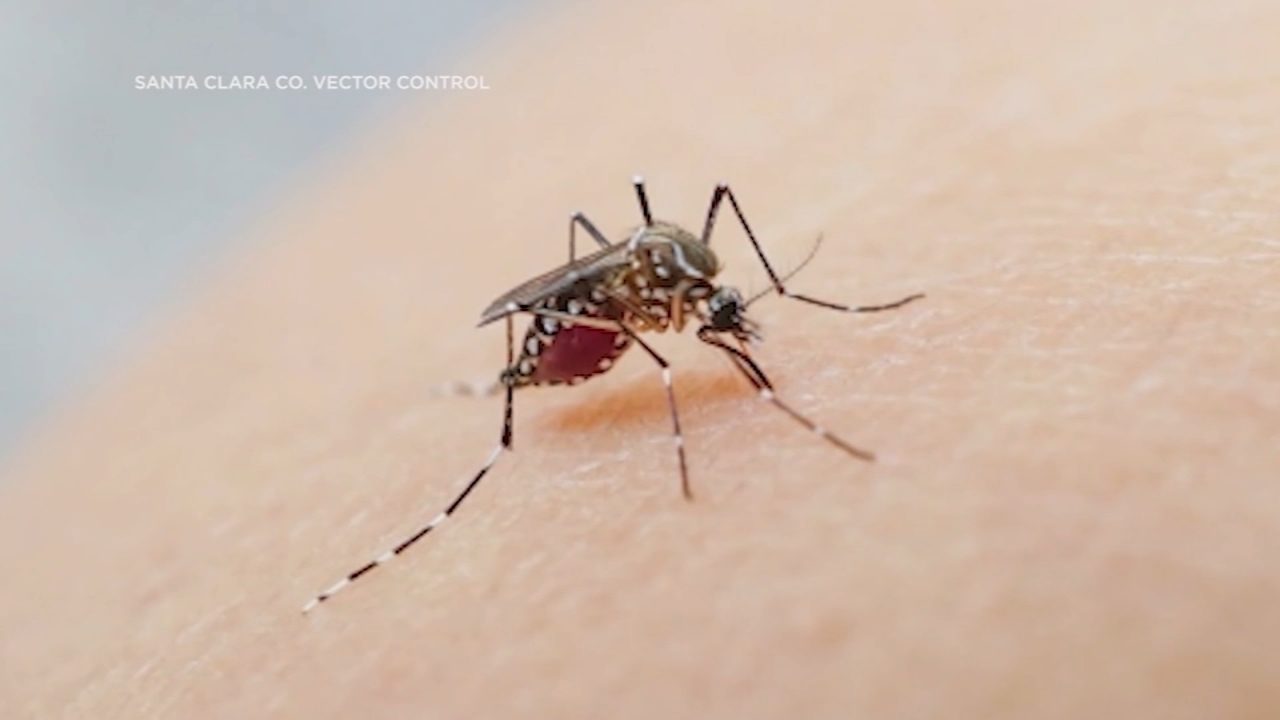New York reports death from EEE after 1st case diagnosed in nearly a decade
The patient was from Ulster County, according to the state Department of Health.

NEW YORK -- The first person in New York state to be diagnosed with eastern equine encephalitis (EEE) in nearly a decade has died, Gov. Kathy Hochul's office announced Monday.
The case was confirmed on Sept. 20 in Ulster County -- located along the Hudson River -- by the state Department of Health. It is currently being investigated by the county Department of Health.
State Health Commissioner Dr. James McDonald previously issued a Declaration of an Imminent Threat to Public Health after the EEE diagnosis, which allows the state to deploy resources including mosquito spraying efforts from Sept. 30 to Nov. 30, 2024.
RELATED: As mosquito-borne illnesses spread, here's how to tell West Nile, dengue and EEE apart
"Eastern equine encephalitis is different this year. While we normally see these mosquitoes in two to three counties each year, this year they have been in 15 counties so far, and scattered all over New York State," McDonald said in a statement. "This life-threatening mosquito-borne disease has no commercially available human vaccine and must be taken seriously. Mosquitoes, once a nuisance, are now a threat."
"I urge all New Yorkers to prevent mosquito bites by using insect repellents, wearing long-sleeved clothing and removing free-standing water near their homes. Fall is officially here, but mosquitoes will be around until we see multiple nights of below freezing temperatures," the statement continued.
The New York case is likely at least the eleventh case of EEE so far this year, according to an ABC News tally. This also includes the 10 known cases listed on the Centers for Disease Control and Prevention's (CDC) website.
Beyond New York, cases have been reported in Massachusetts, with four; New Hampshire, with two; and in New Jersey, Rhode Island, Vermont and Wisconsin, with one each.
RELATED: NJ Health Department reports 2 West Nile Virus deaths among new cases
Between 2003 and 2023, there have been at least 196 EEE cases reported in the U.S., including 176 hospitalizations and 79 deaths, CDC data shows.
Most people who are infected with EEE show either mild symptoms or no symptoms at all, according to the CDC. However, severe cases usually present with fever, headache, chills and vomiting before progressing to the more serious encephalitis, which is inflammation of the brain, or meningitis, which is inflammation of the membranes that surround the brain and spinal cord.
About one-third of all people who develop severe EEE die from the illness, the CDC says, while survivors can experience ongoing physical and neurological problems, including seizures, paralysis, cranial nerve dysfunction, personality disorders, and intellectual disabilities that can range from mild to severe.
There are no vaccines for EEE and health officials say the best protection is to prevent mosquito bites.
RELATED: What you need to know about 'sloth fever' after 21 cases confirmed among US travelers
Health officials recommend wearing long-sleeve shirts and long pants, and tucking shirts into pants and pants into socks, at dusk or dawn, which are times of day when mosquitoes are most active.
Additionally, it is recommended to use insect repellent with DEET, to use screens on windows and doors, and to eliminate all standing water around the home where mosquitoes can breed.
ABC News' Youri Benadjaoud and Meredith Deliso contributed to this report.










